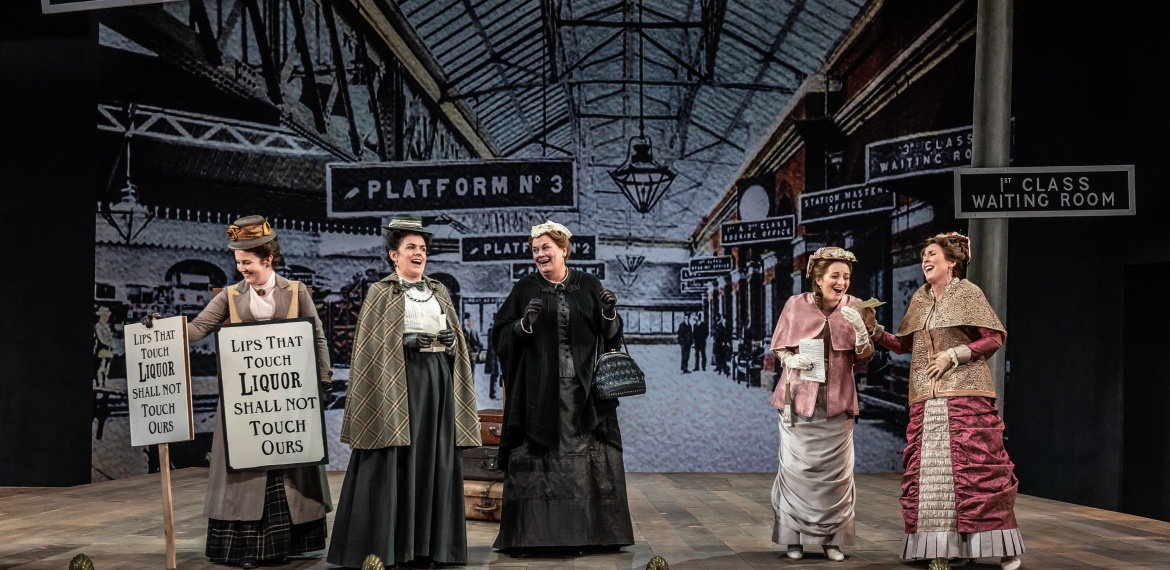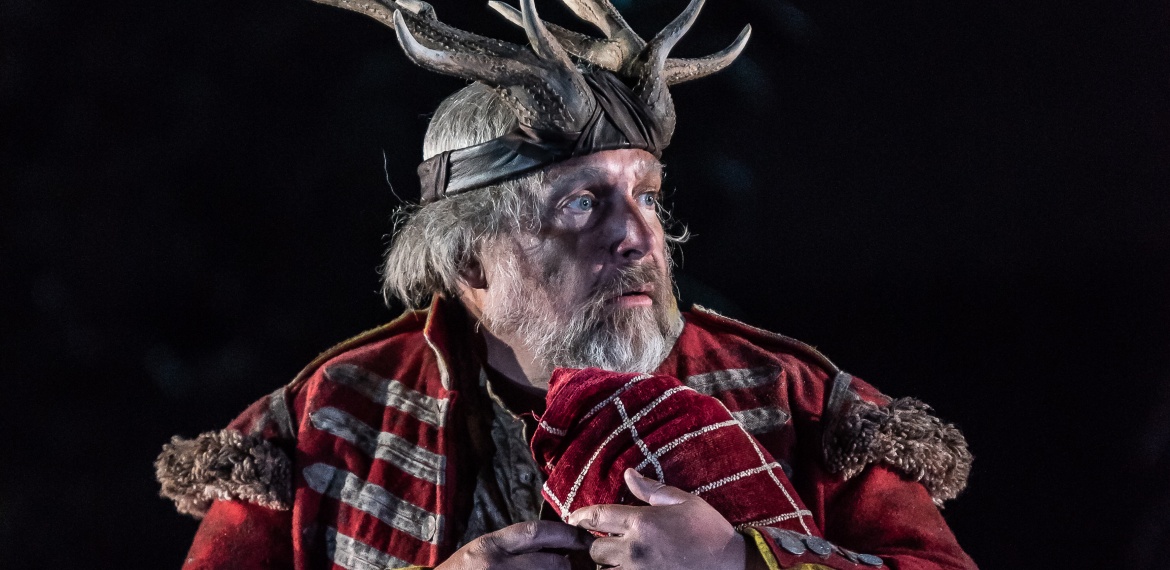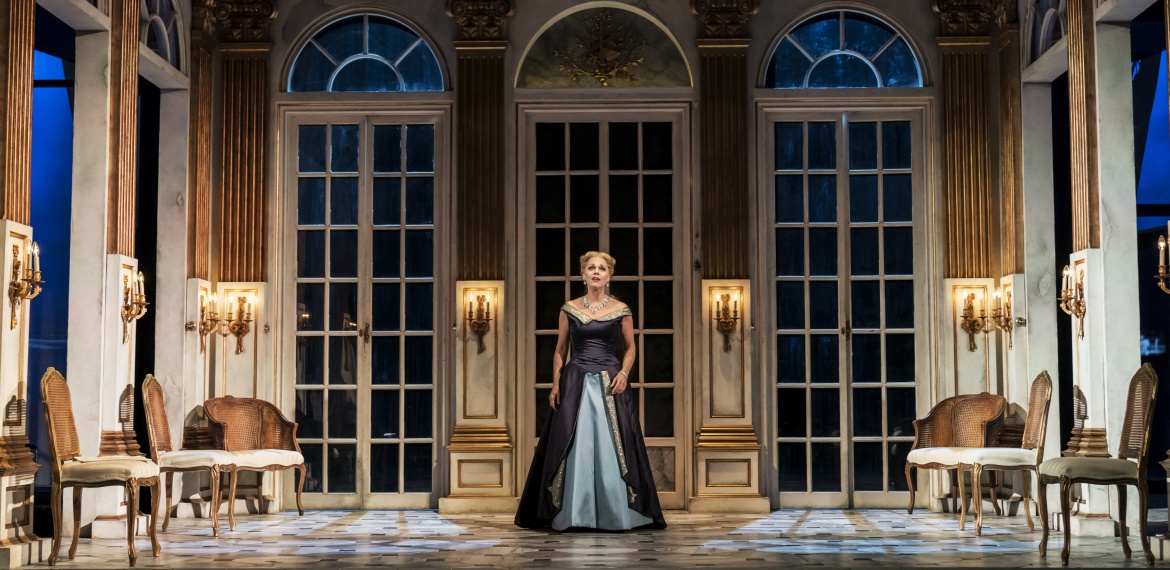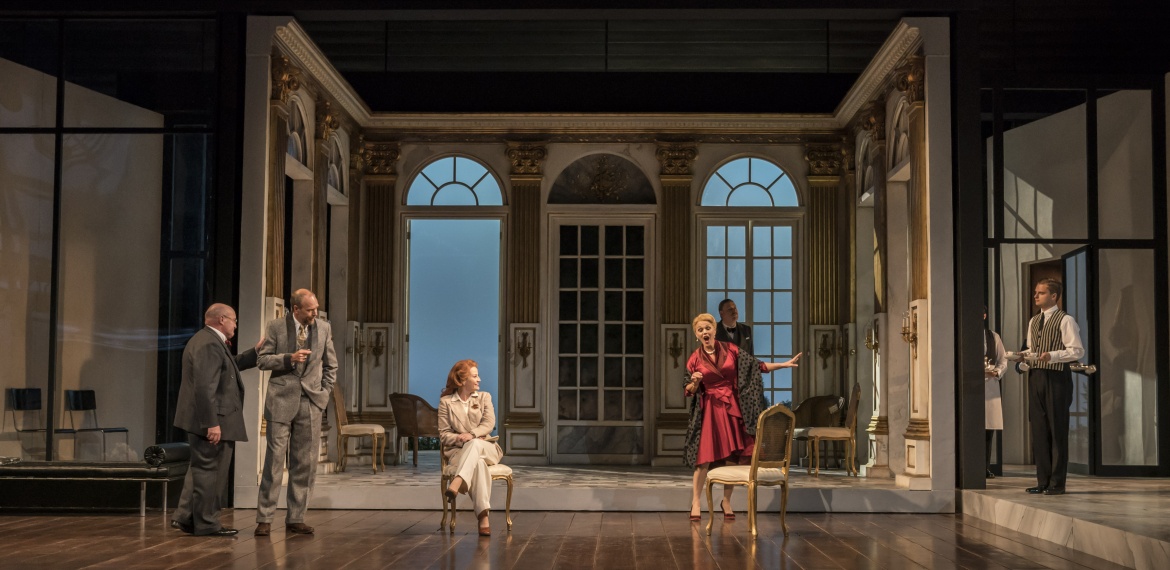Garsington Opera at Wormsley, 21 June 2018
If Capriccio had been moved to the period in which it was written, Bruno Ravella’s production of Verdi’s Falstaff takes us to the start of the twentieth century where the women, ever feisty in the first Elizabethan period, are here supports of women’s rights. Setting the second scene on a railway station (in gently caricatured sets by Giles Cadle) was a highly convincing idea given the large amount of movement the scene involves for all the main characters. If the final scene in Windsor forest lacked something of its potential magic its tongue-in-cheek oak leaves gave a fitting surrounding for the final gulling of Falstaff.
The women were the key agents throughout, with Mary Dunleavy dominating as Alice Ford, though ably supported by Victoria Simmonds’ more prim Meg and Yvonne Howard’s tippling Mistress Quickly. Richard Burkhard’s Ford had a touch of nobility about him which made his jealous outrage all the more convincing. He is also man enough to admit his faults and make up quickly. The young lovers, Soraya Mafi’s Nannetta and Oliver Johnston’s Fenton, were strongly cast and gave the impression that theirs was a relationship which really will last.
Henry Waddington’s Falstaff was unexpectedly sensitive. He is fat of course but not excessively so and aware of the implications of his size. Though his voice is not huge he uses it with skill to bring out the more reflective side of the character – a side we do not always see. He can be bluff with his own people – a fine Bardolfo from Adrian Thompson – but has mellowed enough by the end that it makes sense for Ford to invite him to dinner. No longer the rebel outsider, he has been gradually drawn into the family merchants of Windsor.
The chorus don’t have a lot to do but were effective in the last act, though it was a pity no children were involved as fairies. Richard Farnes kept the score moving smoothly and it was a pleasure to welcome back the Philharmonia Orchestra in what we hope has now become a regular summer date.




